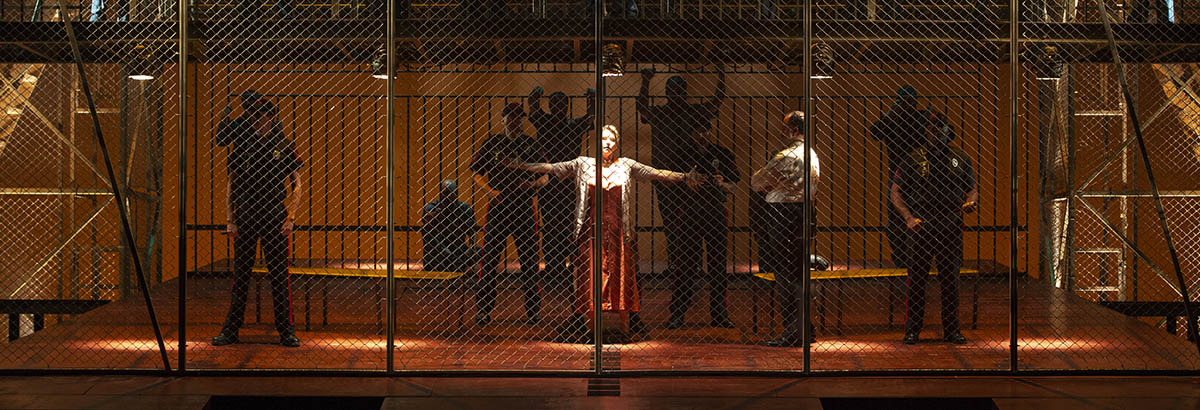April 22, 2019
The Author of DEAD MAN WALKING Talks About the Opera, the Movie, and Her Work on Death Row
In this candid interview with San Francisco public television station, KQED, Sister Helen Prejean shares philosophical insights that have inspired her work as an advocate and author and why she thinks Dead Man Walking has found success across several media.
This opera deals with a controversial and contemporary topic. Is the American public ready for it?
SISTER HELEN PREJEAN: I have found….that the American public is ready to talk about the death penalty. They've needed somebody to take them there. I was happy when the film was done because I knew we were going to have a way to help the American people reflect on the death penalty. It's a moral issue that people don't give a lot of reflection to. I mean, thank God most people personally are not involved with the death penalty because it means somebody would have been murdered in their family. It's the kind of thing that if it doesn't have an impact on your daily life, you hear about a terrible crime, you say they deserve to die—end of reflection.
I believe the American public is ready for this opera, just like I think they were ready for the film, Dead Man Walking. Why did so many people go to see it? Here's a film that's going to take you into something that's really tough and it was a box office success. How do we explain that? I think similarly with the opera that people maybe are ready for deeper spiritual reflection than we give them credit for.
Is the opera blatantly anti-death penalty?
Not at all. No more than the film of Dead Man Walking was. I think a true work of art is one that brings people to a deeper level of reflection. You know, William Faulkner, when he got the Nobel Prize for literature, said that the only thing worth writing about is the conflict in the human heart. True art, I think, brings you both sides of a conflict. Then people go into their own hearts to search it out. The question, as [director of the world premier production] Joe Mantello phrased it, is we see a murder and then we see an execution—is that essentially the same thing or is it different?
You've taken this on as a life journey. Why?
Well, you choose or you get chosen. You know, I didn't seek to do this. I got involved with poor people and the St. Thomas Housing Projects in New Orleans, and I got an invitation to write to somebody on death row and then I walked with him to the electric chair on the night of April 5, 1984. I became a witness. I realized people don't have a way of seeing this, people don't have a way of being brought close. They can read about it in the paper the next day and they're going to see justice was done. And so then my job was to bring people there, which I have been doing ever since. First by talking to people, which I still do, but then writing the book and to continue to accompany death row inmates and their families. I continue to do it because you don't see a whole lot of people volunteering to go into this fire and do it.
What do you hope the audience gets out of the opera?
What I hope that any audience gets out of the opera, the film, the talks I give around the country—which are story telling—is to go to a deeper place in ourselves. Whenever we do something as a society it's always presented as, "This is something good and necessary and it may be tough but it's the only thing we can do." And I think what [the opera] is about is to look at different options. Is the only thing we can do to imitate the worse possible behavior of people who've killed and to say justice demands that we kill you? Is that the only thing we can do as a society or are there alternatives? And I think art helps us explore alternatives, to make new choices, and brings us to that deeper place to do that.
“The Author of Dead Man Walking Talks About the Opera, the Movie, and Her Work on Death Row” was first published by PBS/KQED. To read the full interview with Sister Helen Prejean, visit http://www.pbs.org/kqed/onenight/helenprejean/.
